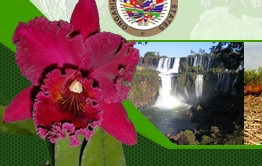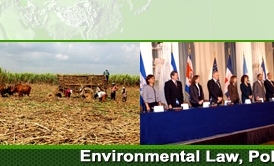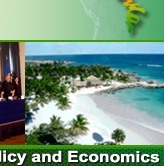|
|
|
|
|
|
|
|
||
|
|
|
||
 |
 |
 |
|
|
|
|
||
|
|
|
|
|
|
|
|
||
|
|
|
||
 |
 |
 |
|
|
|
|
||
|
Latin American
Irrigation Issues and Water Resources Management Presented By: Jose Simas from the World Bank Date: July 20, 2000 Summary: The largest percentage of annual freshwater withdrawal in Latin American countries is generally used for irrigation. Preventing the overdraft of aquifers is the most important issue for Latin American countries. The main irrigation issues to be addressed by each country are institutional, technological, environmental, and priorities. Institutional issues include: land/titling ownership, usersí empowerment on management, water rights, incentives to save water, usersí organizations, transfer of operation and maintenance to usersí organizations, cost effectiveness of operation and maintenance, and sustainable fees. Technical issues include: on- and off-farm management, appropriate technology, adaptive research, training and capacity building, cost-effective practices, operation and maintenance of machinery, drainage and salinity, and modernization. Environmental issues include: salinity, waterlogging, overdraft of aquifers, disposal of hazardous effluents, and use of chemicals in agriculture. Priorities for Latin American countries are: sustainable operation and maintenance, establishing the governmentís role, empowerment of stakeholders, modernization, profitability, determining water and land rights, and giving incentives to save water. Simas presented a model for water resources management that was broken down into the functions of integrated management and monitoring, the functions of water services, the functions of water administration, and the environmental functions. Comments: Short minutes of the presentation and the power point slides are on file. These provide only a skeleton of the presentation as described in the summary above.
|
©
2005 Office for Sustainable Development and Environment -
Organization of American States. All
Rights Reserved. |